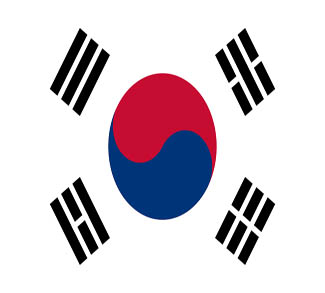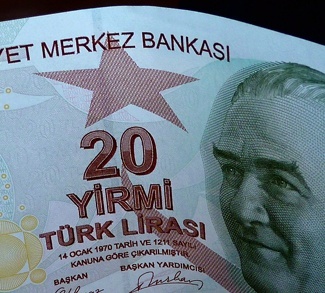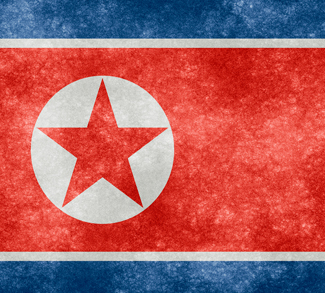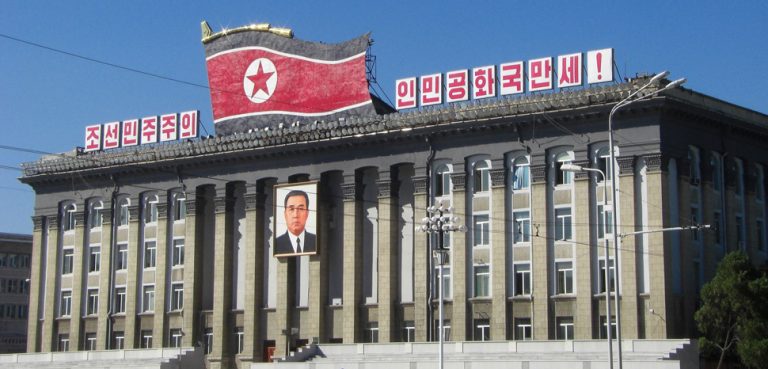On December 19, Park Geun-hye was elected president of South Korea. The daughter of autocrat Park Chung-hee, she will become the country’s first female president. With a voter turnout of 75.8%, Park’s triumph over the liberal candidate Moon Jae-in can be interpreted as a popular endorsement to carry on the status quo conservative leadership that has become entrenched in Seoul. Amidst continued economic downturn, an increasingly tense Asia-Pacific, and erratic signs from the north, the incoming president will be facing a number of pressing issues and as such will need to hit the ground running.
Despite being blasted as the daughter of a dictator, Park Geun-hye’s family legacy has proved a major advantage for the 62-year-old president-elect. Her father, Park Chung-hee, seized power in a coup d’etat in 1960, and he remained president until he was assassinated in 1979. The elder Park is remembered for transforming South Korea from an impoverished backwater (GDP per capita in 1962: $104) to an economic powerhouse (2011: $32,100). Yet he is also remembered for the egregious human rights violations carried out by his administration, and these violations fueled some major criticisms that were levied at the incoming president.
But in the end, his economic legacy carried the day. After publically apologizing for authoritarian rule back in September 2012, Park Guen-hye rode a wave of economic nostalgia to win the 2012 elections.
Park’s election comes at a time of sagging economic growth in South Korea. After decades of exponential growth, South Korea’s export-driven economy has taken a beating amidst the global economic slowdown. According to the government figures, the South Korean economy grew at 2.1% in 2012, well below the global average of 3.3%. This is a far cry from the 5% growth of the early 2000s. The disappointing numbers can largely be attributed to a slowdown in China, South Korea’s chief trading partner, and the ongoing situation in Europe. And though South Korea has been singled out as one of the up and coming MIST countries, with its rapidly-aging population, it seems unlikely that South Korea will be returning to the GDP growth rates of the last decade anytime soon.
Despite its best efforts in the form of an almost universally condemned missile test, North Korea is widely regarded to have played a miniscule role in the election. Pre-election surveys showed that only 4.2% of respondents believed that Pyongyang’s rocket launch would influence the election.
Park’s inter-Korea policy is decidedly less antagonistic than that of her predecessor: she has placed an emphasis on trust-building measures while simultaneously maintaining a powerful deterrence capacity. This harkens back to the days of the liberal Sunshine Policy, the decade-long thaw in inter-Korea relations that ended when Lee Myung-bak was elected in 2008. Park’s vision for inter-Korea relations includes the establishment of exchange and cooperation offices in Seoul and Pyongyang and the eventual establishment of a pan-Korean economic community. This approach is not unconditional – it is premised on Pyongyang offering concessions of its own, including steps towards denuclearization and an apology for the 2010 sinking of the South Korean warship Cheonan.
Pyongyang has so far produced mixed signals in the wake of Park’s election. North Korean state news predictably blasted the newly-elected president, though the North’s actions seem to tell a more complicated story. North Korean leader Kim Jong-un’s New Year’s Day speech included calls for a radical economic renewal and an end to the conflict with the south. This was followed by a series of reports on January 5th that suggested the North is preparing to open up its economy along the lines of the Vietnam model. Foreign investment in North Korea in the past few decades has largely been confined to China and a few other states. As such, the possibility of a large-scale market opening is unprecedented. While speculating on North Korea has long been a fruitless pursuit, these moves could prove to be a catalyst for a substantive change in inter-Korea relations.
Park’s electoral success comes only a week after fellow conservative Shinzo Abe returned to power in Japan. Both Park and Abe have incorporated nationalism into their respective agendas; something that has historically led to increased tension. Indeed, relations have steadily deteriorated over historical grievances and the disputed island of Dokdo/Takeshima. However, the current surge in popularity of like-minded conservative parties in South Korea and Japan could actually prove to be a boon for bilateral relations. President-elect Park met with a special Japanese envoy on January 4 to work to diffuse tensions, and a group of South Korean lawmakers is expected to visit Japan next week.
South Korea’s relationship with the United States is largely expected to strengthen under Park Geun-hye’s administration, who views a strong U.S. alliance as the bedrock of South Korea’s security. The U.S. continues to maintain some 50,000 troops stationed across the country, and given the Obama administration’s Asia pivot, any drawdown of military assets from South Korea is unlikely over the short term. However, Seoul and Washington may face tension in their respective responses towards provocations from North Korea. In the likely event of a third North Korean nuclear test, Park may be reluctant to adopt the unequivocally hardline approach that was taken by Lee. Washington may end up viewing this strategy as too accommodating, and could in turn ratchet up the pressure on Park.
South Koreans have opted for continuing the status quo in Park Geun-hye; a continuation of conservative rule despite four unpopular years of the Lee Myung-bak administration. Park will need to take careful steps to avoid her predecessor’s gaffes – namely actively pursuing dialogue with its neighbours to ease territorial tensions, re-engaging with the North, and taking steps to ensure South Korea remains on stable economic footing.




